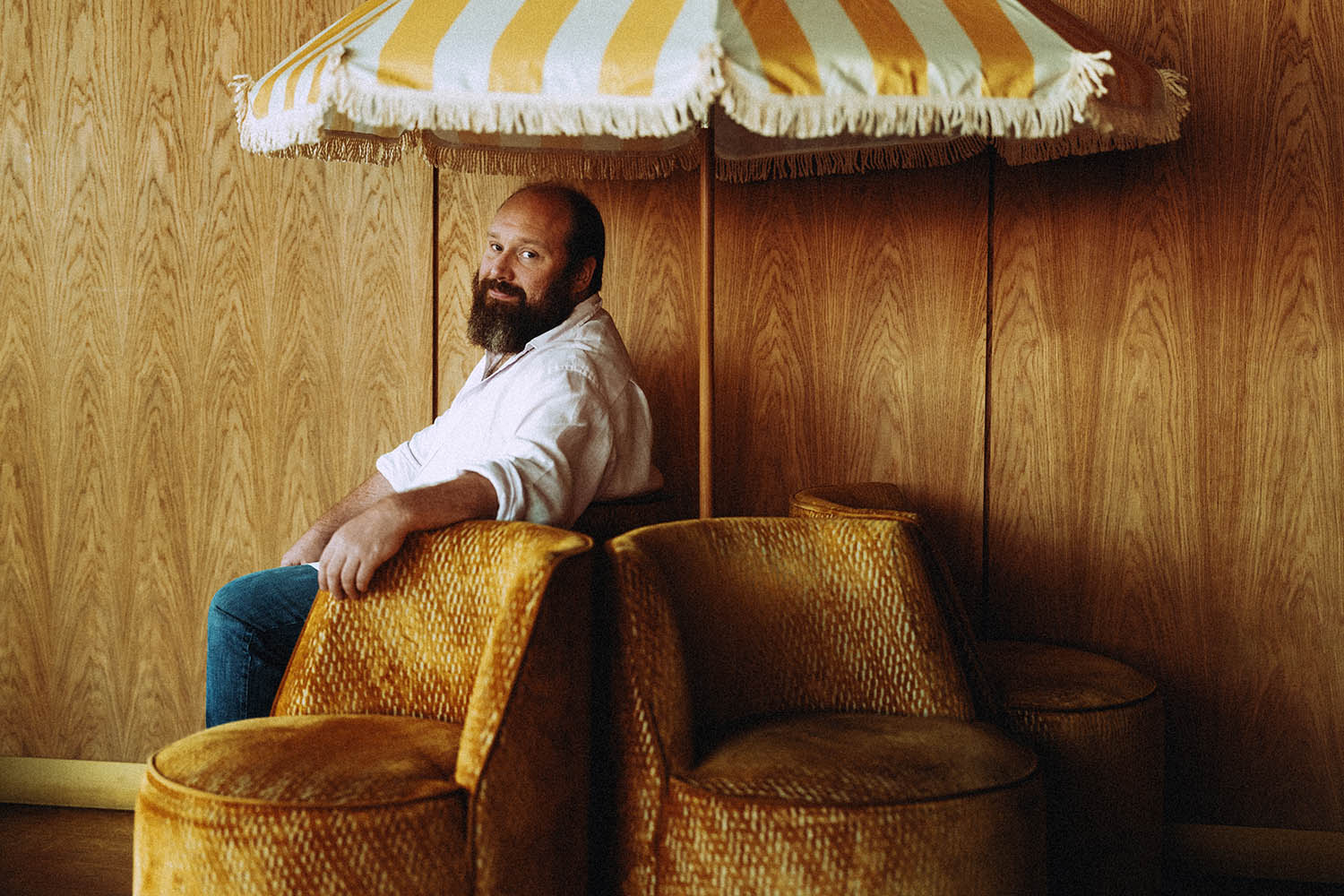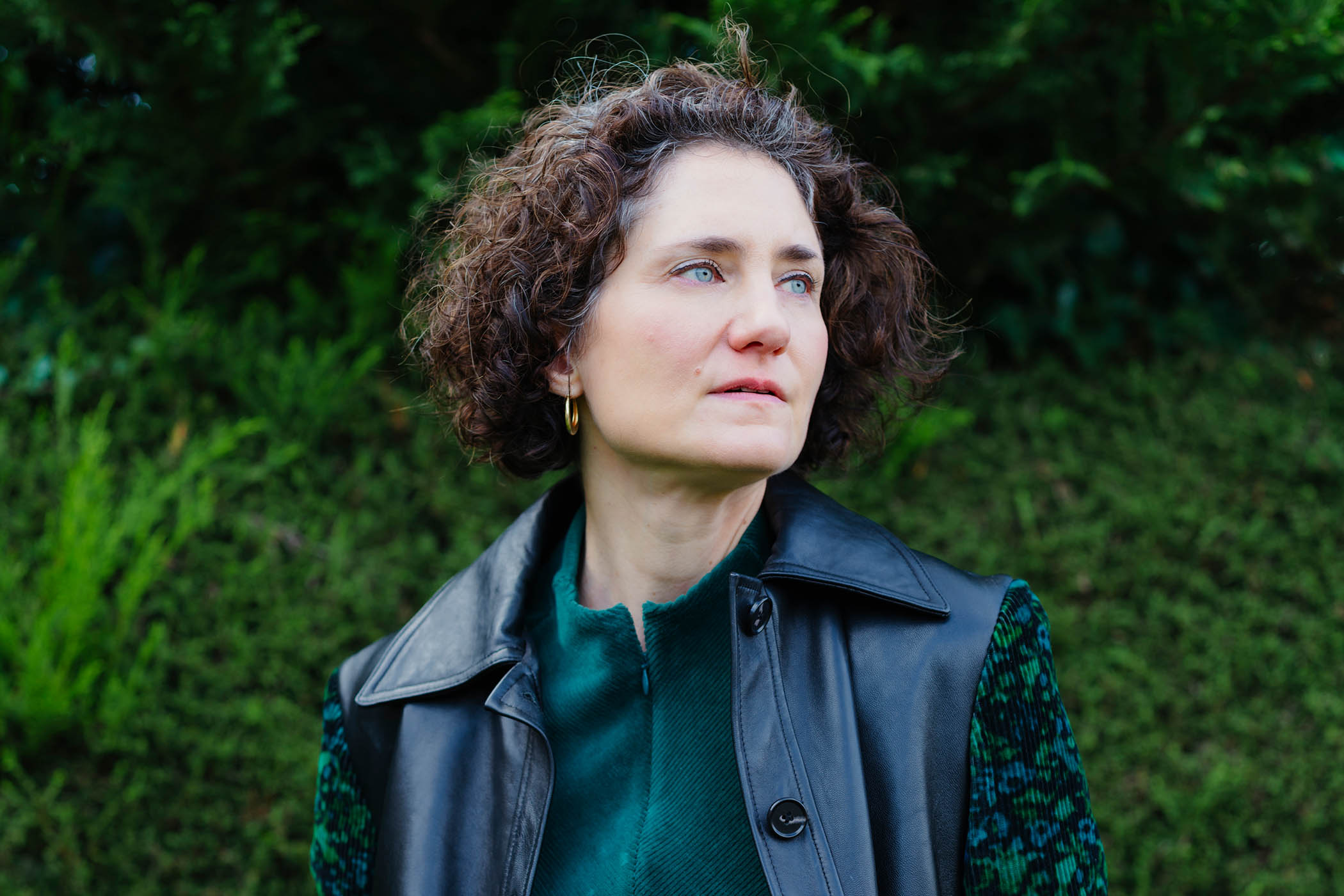Photograph by Benjamin McMahon
I was standing in an old-man pub opposite the Theatre Royal in Margate, halfway through sharing a quite exceptional anecdote, when my partner took me aside. She told me there was something very wrong with the pregnancy.
We’d only just come off stage. It had been, honestly, a great show – we’d performed together. I was sweaty, high on adrenaline, ready to get a bit drunk and tell funny stories to our friends and strangers. This is what I do best. I’d already downed half a pint in one gulp on the walk across the street in preparation. I looked at her. It didn’t make sense. Just a second ago, she’d seemed (to me) to be breezing through, making it all seem so effortless. Now she was telling me she hadn’t felt the baby move or kick for 24 hours.
She was booked in for an emergency scan the next morning. It was unclear if that was reassuring. Still in the pub, we stood in this crowd of strangers, holding hands in silence while everyone around us laughed and shouted and carried on. I felt incredibly small. Powerless. I was terrified we’d lose our baby. But I was even more terrified that losing our baby might actually be what I wanted, and what that meant about how unspeakably awful a person I must be. It was a terrible thought. I never finished that anecdote.
From a young age – as long as I can remember, actually – I knew I didn’t want children. I have a distinct memory of declaring this to my mum. We are perched on the stairs in our old house and I’m sitting in her lap while her arms are wrapped around me. I’m pretty sure it was the same day, or perhaps the same week, that she and my dad had told me about their divorce. I would have been six, or maybe seven. I announced my desire to be perpetually child-free with absolute certainty.
“You’ll change your mind one day,” she replied.
I thought it over while picking at her long, pink-painted nails. I had a habit of doing this when I was worried. Unconvinced, I didn’t say anything for a while. Mum yelped in pain: I’d picked at the skin around her nails so hard I’d drawn blood. She pulled a tissue from somewhere and dabbed at it. I ran off to play.
My mind didn’t change in the years that followed, despite her prediction. From early adolescence on, I told everyone that fatherhood just wasn’t for me. Friends. Family. Colleagues. Strangers on the bus. I’ve always talked to people on buses.
I don’t really like to think about my own childhood much, even less burden anyone else with it. Around the time I hit puberty, I stopped seeing my dad – and I won’t ever again. Soon after, my mum became so ill she went upstairs to bed and didn’t really come back down for a decade. My sister and I brought each other up – and there were some wonderful moments. Only, depression flows through every branch of my family tree. I’d grown up around stories of hospitalisations, nervous breakdowns, years and lives lost to it.
I was no different, but my greatest skill was masking; not letting the world know how I was feeling. I’d learnt to channel smiley, chipper cheerfulness to cover the fact I was never really not in pain. And it worked quite well: I was a fun, jolly man who wrote funny songs and told jokes at parties. How could anyone who talks to strangers on buses possibly be depressed? Kids would frustrate the delicate equilibrium of this balancing act. Remaining childless, I’d always known, was best for everyone.
Just being around little kids was painful to me. I’d find myself overwhelmed with loneliness and terror
Just being around little kids was painful to me. I’d find myself overwhelmed with loneliness and terror
Just being around little kids was painful to me. I would try to play with the children of close friends, or my young niece, and would find myself overwhelmed with loneliness and terror, taken back to memories and emotions of my own childhood. The waves of sadness would crash through, leaving me physically nauseous; the tightness of constantly trying and failing to please a dad I was so scared of; the desperation to somehow protect my mum even though I was just a tiny boy. The sense of never feeling safe.
Little kids, I had realised, live and play in the now. To play with them you have to commit to the present moment. I had always survived by distracting my brain from anything I was really thinking.
When, in my mid-30s, I fell madly in love with a woman who wanted a family, I figured I’d just deal with that particular problem later. Being in love was so lovely and distracting and maybe, I let myself briefly believe, fatherhood might actually be OK? Anyway it wasn’t an issue yet, we’d only been together a short while.
When she fell pregnant, quite by surprise, less than a year in, I did everything I could to be the positive and supportive presence I knew I was meant to be. Big smiles, joke-cracking, sharing the news with strangers on buses. I don’t know how successful I was at playing the role of “proud and prepared expectant father”, but I tried to take it on as best I could. On the inside, however, I was crumbling, as low as I had ever been, rejecting and alienating friends hoping to help when they could see I was struggling; I refused to acknowledge that the prospect of impending parenthood came with any complicated feelings. Everything is fine! I’d tell them, while I drank a lot. Too much. Sometimes, on my own in rooms without the lights on. Sometimes in pubs after finishing a show, telling long anecdotes to strangers. Anything to not be in the present.
The journey to the hospital in Margate has now entirely blanked from my mind. I find that happens sometimes. But I do remember walking into the appointment room and waiting for news about our baby’s fate: all clear, or the alternative. I remember feeling a deep desperation for neither of the two life-changing options to be true. I held my partner and smiled and told her it would all be OK. Silently, I felt certain I would never recover from either set of news. Both outcomes, I felt sure, would prove too painful. A nurse took a tube of something and after slathering a layer of it on to my partner’s belly, ran a device over the bump.
I didn’t look at the screen. I was looking away at a massive moment in my life, but I did that a lot. I dissociated and stared blankly into the middle distance. Then, quite suddenly, a sound filled the room, bringing me back. It was loud and fast and strong and consistent, pulsating through the speakers.
Bam, bam, bam, bam, bam, bam, bam…
My daughter’s heartbeat was powerful, never-changing, relentless. It just kept going, over and over, exactly the same, again and again and again. It was beautiful and reassuring. To my surprise, I felt calm, as if I was meeting this little girl for the first time. And she was (to me) immediately and very clearly totally brilliant.
So many of the things I know about her now were in that sound I heard in that hospital room. The fact that she’s brave and strong and funny; that she’s silly and loud and outrageous, but also passionate and stubborn and caring and gentle. Whoever she would go on to be, it was clear from that scan that our unborn baby was absolutely fine. And maybe, it suddenly occurred to me: I could be absolutely fine as well.
I’m really not recommending that if you’re incredibly low and you haven’t ever dealt with your own trauma that the solution is to have a baby, only, sometimes the massive things force us out of stasis and make us start the work. And from that moment, very slowly, I did. Weekly therapy sessions taught me to be nicer to myself and start, actually, dealing with everything I’d been suppressing. Turns out it was all very ready to come rushing out. I took 40mg of the anti-depression mediciane citalopram every day. It’s a high dose I would tell people, but I’m a large man. I even started running. A bit. Slowly. It’s hard work and it’s never finished. But I’d put it off all my life and the cost of it was, I’d never actually been living. Not really. I was getting through and pretending. Slowly, I was starting to feel.
I’ve got two little girls now. Every morning they bound into our bedroom and wake me up just before 5.30am, usually by jumping directly on to my head. That part is still really dreadful. They are so incredibly loud and happy, and so absolutely in the moment of living. Usually one of them has found a fragile possession of mine that, I groggily notice, is now being repurposed as a drum. They bang it nonstop with the same powerful relentlessness as my daughter’s emergency scan heartbeat. It should be the most awful way to start the day. But, somehow, most days, it’s not.
Every Brilliant Thing is playing @sohoplace theatre until 8 November (sohoplace.org)
Newsletters
Choose the newsletters you want to receive
View more
For information about how The Observer protects your data, read our Privacy Policy


